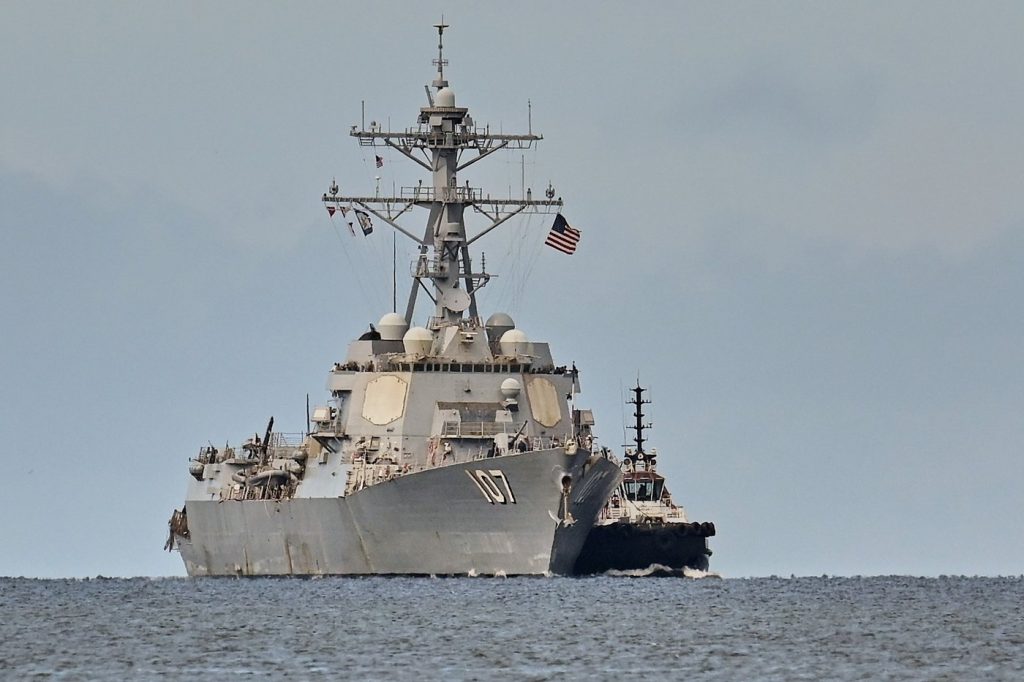PORT-OF-SPAIN, Trinidad and Tobago (AP) — A U.S. Navy warship, the USS Gravely, docked in Trinidad and Tobago's capital on Sunday as the Trump administration intensifies military pressure on Venezuela and its President, Nicolás Maduro. This development comes amid regional tensions, with the guided missile destroyer joining the aircraft carrier USS Gerald R. Ford, which is approaching Venezuela.
President Maduro condemned the movement of the USS Gerald R. Ford, accusing the U.S. government of attempting to orchestrate "a new eternal war" against his nation. U.S. President Donald Trump has also publicly accused Maduro, without presenting evidence, of being linked to the organized crime group Tren de Aragua, further escalating the conflict between the nations.
In an official statement, U.S. Embassy Chargé d'Affaires Jenifer Neidhart de Ortiz emphasized that the presence of the USS Gravely is intended to facilitate training exercises aimed at addressing shared threats, including transnational crime, and to enhance collaboration through humanitarian missions and security efforts. The warship is expected to remain in Trinidad until Thursday, allowing both countries to conduct these exercises.
A senior military official in Trinidad and Tobago revealed that the scheduling of the U.S. Navy's visit was decided recently; however, they spoke anonymously due to restrictions on discussing military operations publicly. In Trinidad and Tobago, Prime Minister Kamla Persad-Bissessar has expressed support for the U.S. military presence, particularly concerning operations targeting drug trafficking in Venezuelan waters.
In a pointed response to the U.S. military exercises, Venezuela's Foreign Ministry labeled the activities as a "serious threat" to regional stability and a "hostile provocation" towards Venezuela. The visit of the USS Gravely coincides with heightened tensions, as the U.S. Embassy in Trinidad and Tobago had recently issued a warning to Americans to stay away from U.S. government facilities due to a reported threat against them.
Local sentiment has seen significant pushback against the docking of the USS Gravely. At a recent demonstration outside the U.S. Embassy, David Abdulah, leader of the Movement for Social Justice political party, criticized the government's decision to permit the warship's presence, branding it "an abomination" given the context of potential war with Venezuela.
The regional trade bloc Caricom, which includes Trinidad and Tobago among its 15 member states, has advocated for dialogue amid these tensions. Although Trinidad and Tobago is a member of Caricom, Prime Minister Persad-Bissessar remarked that the region does not represent a "zone of peace," referring to high rates of violent crime and murder in the area.
This situation marks a significant moment in U.S.-Caribbean relations, especially as military moves continue to unfold in the context of Venezuela's ongoing political crisis and the broader implications for regional security. Local and regional leaders are now faced with the challenge of balancing their positions amid heightened military activity and geopolitical tensions in the Caribbean.
Overall, the presence of the USS Gravely and the accompanying military exercises signal a critical juncture in U.S. relations with both Venezuela and Trinidad and Tobago, with potential implications for regional stability and security.












